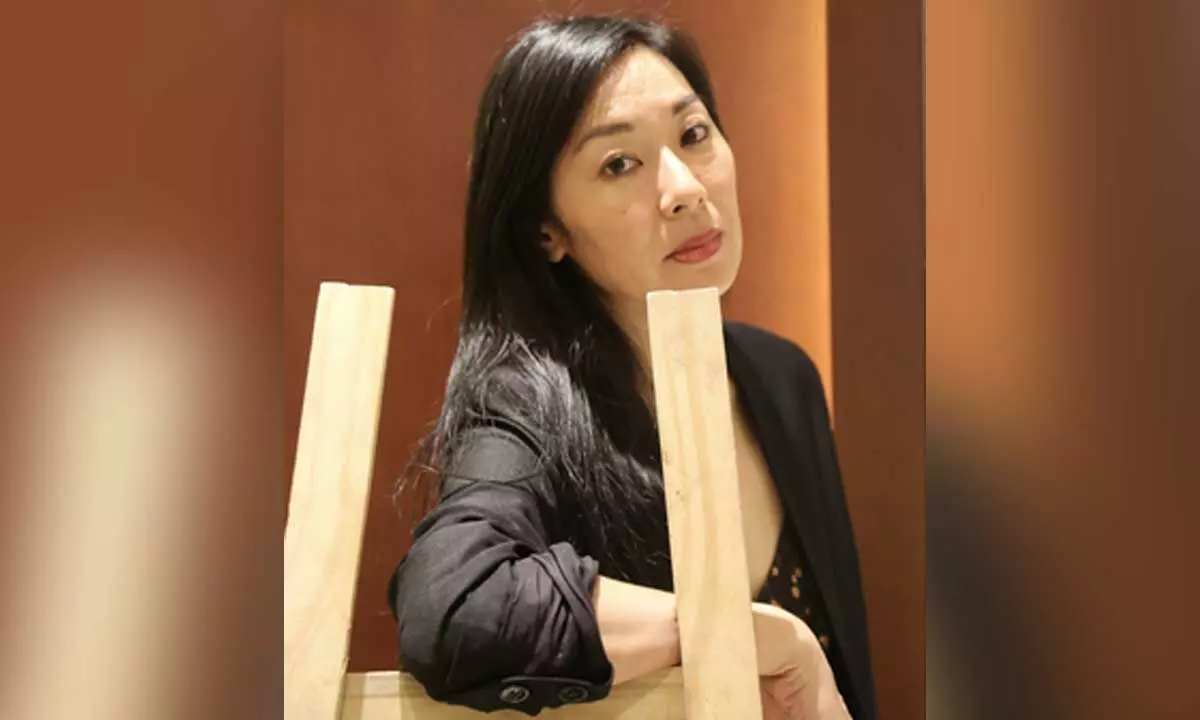Separation, unloving -- a tragedy that makes us empty
Share :

The conversation starts with her book 'A Separation', and the fact that unloving can be such a tragedy for the person who stops being tender, making him/her completely empty. Well-known American author, journalist, and art critic Katie Kitamura replies that starting the book, she thought it was about the end of marriage.
New Delhi: The conversation starts with her book 'A Separation', and the fact that unloving can be such a tragedy for the person who stops being tender, making him/her completely empty. Well-known American author, journalist, and art critic Katie Kitamura replies that starting the book, she thought it was about the end of marriage.
“However as I finished writing it, there was a realisation that it was about grief, and in many ways death. I was interested in a character who was initially playing the part of a grieving widow and then it lead to a a space in between the face and mask, and more than the wife, it is the widow’s identity...”
‘A Separation’ is about a young woman, who has agreed with her husband that it is time for them to separate. As she begins her new life, he goes missing and she reluctantly agrees to go and search for him. She is not even sure if she wants to find him. Adrift in the wild landscape, she traces the disintegration of their relationship, and discovers she understands less than she thought about the man she used to love.
In her last, ‘intimacies’, a woman is caught between many truths. An interpreter at the International Court. She gets pulled into an explosive political controversy when she’s asked to interpret for a former president, accused of war crimes. A woman of quiet passion, she confronts power, love, and violence, both in her personal intimacies and in her work at the Court.
“The guilt of the person can be carried out by another person -- it’s how when people feel something for you. Like professional mourners and how someone feels something for you. And it is in many cultures,” says the author.
But in today’s world, how relevant is an institution like the International Criminal Court (ICC) and International Court of Justice (ICJ)? I think both these institutions are extremely important. Yes, they are flawed in a way that institutions are but I would like them to have some moral authority.
“ICJ’s recent ruling was non-binding and I want for them to succeed. I am not the person who is cheering the demise of these institutions.”
The author, who earned a PhD in American Literature from the London Consortium, and is currently an Honorary Research Fellow, there, admits that she had to unlearn academic writing to write fiction.
“Yes. It was a long process. And even now I do feel myself slipping into it, especially jargon in fiction can sometimes be a form of deflection or concealment. One thing is clear, you can only write fiction when you feel like being exposed. I do not think I have the skills of a journalist. And I make up the rules in some way when I write fiction. There are many things that are useful for a writer and it is important one writes in ways that you are not used to.”
Japan, for Kitamura, has always held a special place. Not just because her entire family and childhood memories reside there.
“It has a lot of contradictions, even aesthetically. They perceive it as minimal but if you go down a street there, it’s cluttered and there is tension. It is not all minimal and wabi-sabi. There is a lot of pleasure in the country. Yes, my first experiences of language are there and I have not lived there, so there is a strange sense of longing for me.”
Kitamura, who earlier in her life trained as a ballerina debuted as a novelist with ‘The Longshot’, which follows a former mixed martial arts star and his longtime coach over three fraught days as they prepare for his momentous comeback match, says a fight can also be existential in some ways.
“I have never been a fighter. But yes, the world becomes smaller when you prepare for the fight and then it is just the ring. You enter a different reality.”
The author admits that her style changed quite substantially, when she started writing in first person and became interested in trying to find a voice that was less concerned with a kind of riddled down style, but in conveying the movement of the mind including all the repetitions.
“And with a book that is written in third person, you have a different perspective. And in first person, it has a certain looseness to it,” asserts Kitamura, who was also at the recent Jaipur Literature Festival.
And when does she ‘know’ that the idea is ready to take shape on paper?
“Well, Hillary Mantel said that you can ruin a book by writing it at the wrong time and that is so true. The early stages of a book are delicate. I sometimes stop when I feel it is not quite ready. You do feel it is opening up at some points, but that can be found out only by writing,” concludes the author, who has just finished writing another book.










